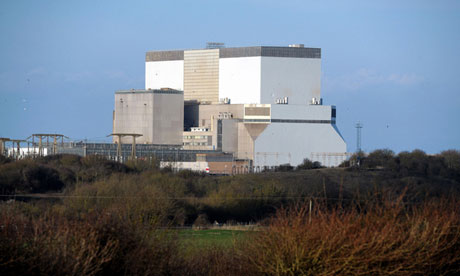Stop Hinkley takes the message to Brussels: ‘No Subsidies For New Nuclear Power Plants’
Report by Jo Smoldon
Stop Hinkley were invited to Brussels to take part in a demonstration on the 24th March. It took place at the EU headquarters and our Euro MEP Molly Scott Cato joined the list of speakers who inspired us. We were thrilled to be invited as it was important for us to be there and represent our Stop Hinkley campaign, which was central for the other participant's presentations. Molly spoke of Stop Hinkley's long standing commitment to the anti-nuclear campaign in Somerset over 30 years and acknowledged our presence and perseverance.
The demo was outside the EU headquarters and our Euro MP Molly Scott Cato joined the list of speakers who inspired us. We were thrilled to be invited and to take part – it was important for us to be there and represent our Stop Hinkley campaign which was central for the other participant's presentations.
Many countries and anti-nuclear groups were represented including Austria , Holland , Belgium and Germany . It was affirming that all of these people were there for us too, different groups coming together in a united way, with common cause, across all our different languages. It gave great strength to us all.
An Austrian speaker's informative talk highlighted the 1957 Euratom treaty which the EU countries all signed in support of nuclear. Austria sees today that this needs to be updated and for nuclear power to be removed. One solution is for individual countries to pull out from the Euratom treaty, perhaps Luxembourg and Austria , and then encourage Germany to pull out. Hopefully others will follow to undermine the dictating Euratom treaty.
Peter Smith, a Stop Hinkley supporter who spent many years working in a very senior position at Hinkley, spoke from the heart about his journey from Hinkley Point worker to anti-nuclear campaigner. The audience fell silent listening to the details of his life experience revealing the delusion, denial, and danger leading to disaster and destruction from the nuclear industry. His shock when he realised that the industry has never confessed to its employees that the finances won't ever add up. The money needed for decommissioning and waste storage is never costed into the nuclear energy production. Nuclear workers are continuously being deceived!
There are many in Europe asking about the UK government and wondering what is going to happen in the forthcoming elections. One speaker, when looking at the attitudes to energy provision comparing nuclear to renewables, described Cameron as not only a donkey in the horse race, but a dead donkey!
Molly spoke of Stop Hinkley's long standing commitment to the anti-nuclear campaign in Somerset over 30 years and acknowledged our presence and perseverance.
The power network was talked about. In the South West the spare capacity is already allocated to Hinkley on the grid and renewables have been left with no possibility to feed in. Is there a strategy in DECC? Businesses are being told that no intermediate renewable sized projects can be approved, only small domestic ones.
We heard about various other reactors around Europe . In Austria , although they finished a nuclear power station, they decided never to switch it on.
Inspiration was given when it was revealed that last year in Germany energy saving technology has meant that in a year 5% of their energy has been saved. That just shows how, by simply looking at what we are doing, from individuals to big companies, everyone can make a difference to the energy total that is required.
The Belgium speaker told of the 18cm cracks in their reactor and again it was highlighted the importance of individuals investing in renewables.
As the different countries told their stories, no one could miss the fact that the two countries pushing for nuclear are UK and France . This is due to the nuclear weapons facility for Europe being subsidised ad infinitum. As always, the weapons issue was mentioned. It has underpinned the need for nuclear power from the beginning.
Everyone pledged to get more signatures on the petition against the illegal subsidy for nuclear. Subsidy and waste needing £billions to keep it safe, goes on and on and on and on…..so must our determination to stop it. https://www.ews-schoenau.de/campaign


